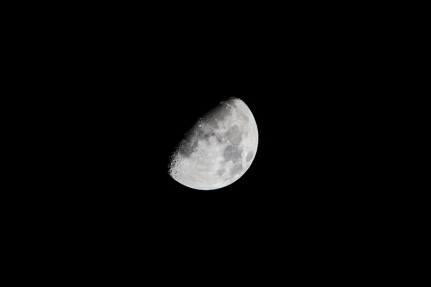November 15, 2015 by tawheedfirst
 Loving leisure, preferring idleness and the perceived difficulty of tasks are what lead one to laziness. Bukhāri and Muslim reported from Anas ibn Mālik (radiAllāhu ‘anhu) that the Prophet (salAllāhu ‘alayhi wasallam) used to frequently say, “I seek refuge in Allāh from grief and distress, old age and laziness.” 1
Loving leisure, preferring idleness and the perceived difficulty of tasks are what lead one to laziness. Bukhāri and Muslim reported from Anas ibn Mālik (radiAllāhu ‘anhu) that the Prophet (salAllāhu ‘alayhi wasallam) used to frequently say, “I seek refuge in Allāh from grief and distress, old age and laziness.” 1
Muslim reported in his Sahih that Abu Hurayrah (radiAllāhu ‘anhu) narrated that the Prophet (salAllāhu ‘alayhi wasallam) said, “A strong believer is better and more loved by Allāh than a weak believer.” 2
At all times, strive for that which will benefit you, seek the help of Allāh, and do not be helpless. If anything (bad) befalls you, do not say , ‘If only I had done such-and-such, then such-and-such would have happened.’ Rather you should say, ‘Allāh preordained this, and whatever He wills He does,’ for the words ‘if only’ open the door to Shaytaan.
Ibn Mas’ood (radiAllāhu ‘anhu) said, “I detest a man whom I see idle from striving for this world and the hereafter.” 3 He also said, “At the end of time there will be people whose best actions will be blaming each other, also known as the lazy ones.”
Ibn ‘Abbās (radiAllāhu ‘anhu) said, “Slackening married laziness and they gave birth to poverty.”
Continue Reading »


 Many of them would not have the strength to interact with creation and, as a result, would flee so that they could be alone with their beloved; this is why many of them would spend long periods of time in seclusion. When one of them was asked, “Do you not feel the bite of loneliness?” He replied, “How can I when He has said that He is the companion of one who remembers Him?” Another said, “How can one feel the bite of loneliness when he is with Allāh?” Yet another said, “Whoever feels the bite of loneliness when alone does so because of his lack of solace with his Lord.”
Many of them would not have the strength to interact with creation and, as a result, would flee so that they could be alone with their beloved; this is why many of them would spend long periods of time in seclusion. When one of them was asked, “Do you not feel the bite of loneliness?” He replied, “How can I when He has said that He is the companion of one who remembers Him?” Another said, “How can one feel the bite of loneliness when he is with Allāh?” Yet another said, “Whoever feels the bite of loneliness when alone does so because of his lack of solace with his Lord.” O you whose nature is unyielding and whose heart is inclined towards his nature: think of the purpose for which you were created, and what it is that Allāh made incumbent upon you. If you wish to ride the stallion that is your soul, then you must tame it, and counteract the effect of your mercurial nature, so that you can harness it for proper use. Look for the dawn of reward during the night, and pour out the intoxicant of your desires, so that you do not get caught by the One in authority [i.e. Allāh].
O you whose nature is unyielding and whose heart is inclined towards his nature: think of the purpose for which you were created, and what it is that Allāh made incumbent upon you. If you wish to ride the stallion that is your soul, then you must tame it, and counteract the effect of your mercurial nature, so that you can harness it for proper use. Look for the dawn of reward during the night, and pour out the intoxicant of your desires, so that you do not get caught by the One in authority [i.e. Allāh]. When you desire to counsel or advise someone, it is befitting that you are personable with them by using kind statements and nice speech that will allow your speech to enter and open their heart to your speech. Notice that while Luqman was advising his son, he used beautiful speech, an effective method, and words that would enter his heart. Look at the words he used with his son while advising him. You will find that the phrase “Oh my dear son” is repeated throughout the advice because this phrase has an enormous impression on the son; it affects his soul and it aids him in being attentive [so that he may] completely benefit.
When you desire to counsel or advise someone, it is befitting that you are personable with them by using kind statements and nice speech that will allow your speech to enter and open their heart to your speech. Notice that while Luqman was advising his son, he used beautiful speech, an effective method, and words that would enter his heart. Look at the words he used with his son while advising him. You will find that the phrase “Oh my dear son” is repeated throughout the advice because this phrase has an enormous impression on the son; it affects his soul and it aids him in being attentive [so that he may] completely benefit.

 Loving leisure, preferring idleness and the perceived difficulty of tasks are what lead one to laziness. Bukhāri and Muslim reported from Anas ibn Mālik (radiAllāhu ‘anhu) that the Prophet (salAllāhu ‘alayhi wasallam) used to frequently say, “I seek refuge in Allāh from grief and distress, old age and laziness.” 1
Loving leisure, preferring idleness and the perceived difficulty of tasks are what lead one to laziness. Bukhāri and Muslim reported from Anas ibn Mālik (radiAllāhu ‘anhu) that the Prophet (salAllāhu ‘alayhi wasallam) used to frequently say, “I seek refuge in Allāh from grief and distress, old age and laziness.” 1